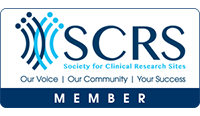Seasonal affective disorder (SAD) is a type of depression that’s related to changes in seasons — symptoms of SAD begin and end around roughly the same time every year. If you’re like most people with SAD, your symptoms tend to start in the fall and continue into the winter months, sapping your energy and making you feel moody. Less often, SAD causes depression in the spring or early summer.
What Are the Signs and Symptoms of SAD?
SAD is not considered a separate disorder from depression; it is a type of depression characterized by its recurrent seasonal pattern, with symptoms lasting about 4 to 5 months per year. Therefore, the signs and symptoms of SAD include those associated with major depression, and some specific symptoms that differ for winter-pattern and summer-pattern SAD. Not every person with SAD will necessarily experience all of the symptoms listed below.
Symptoms of major depression may include:
- Feeling depressed most of the day, nearly every day
- Losing interest in activities you once enjoyed
- Experiencing changes in appetite or weight
- Having problems with sleep
- Feeling sluggish or agitated
- Having low energy
- Feeling hopeless or worthless
- Having difficulty concentrating
- Having frequent thoughts of death or suicide
For winter-pattern SAD, additional specific symptoms may include:
- Oversleeping (hypersomnia)
- Overeating, particularly with a craving for carbohydrates, leading to weight gain
- Social withdrawal (feeling like “hibernating”)
Specific symptoms for summer-pattern SAD may include:
- Trouble sleeping (insomnia)
- Poor appetite, leading to weight loss
- Restlessness and agitation
- Anxiety
- Episodes of violent behavior
How Do I Combat SAD?
Treatment for SAD may include light therapy (phototherapy), medications and psychotherapy. Don’t brush off that yearly feeling as simply a case of the “winter blues” or a seasonal funk that you have to tough out on your own if you think it may be a more serious disorder. Seek help from loved ones or mental health professionals to understand the steps you can take to keep your mood and motivation steady throughout the year.
Join a Clinical Research Trial with Preferred Research Partners
If you or someone you know is in immediate distress or is having thoughts of self-harm, call the National Suicide Prevention Lifeline toll-free at 1-800-273-TALK (8255). You also can text the Crisis Text Line (HELLO to 741741) or use the Lifeline Chat on the National Suicide Prevention Lifeline website. Preferred Research Partners in Little Rock, Arkansas is enrolling participants with depression for a clinical trial. Learn more today to see if you qualify for enrollment!



